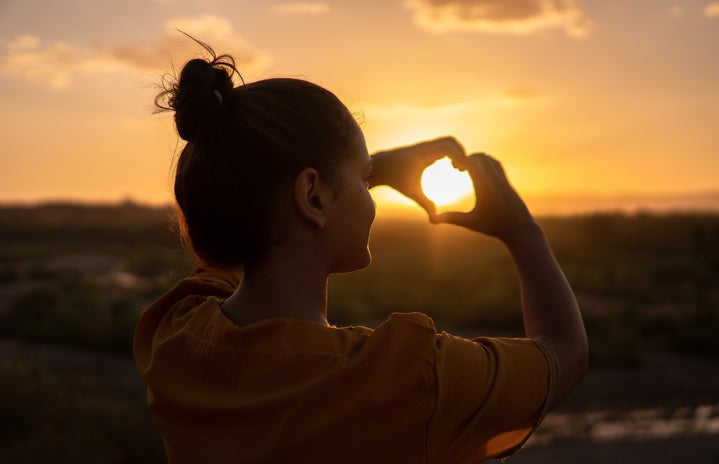I love Valentine’s Day. In fact, it’s probably my favourite day of the year. A holiday about love, cupid, hearts, and chocolate is something I will always get behind. I don’t care if it’s kitschy, I don’t care if it’s a yearly reminder of my sweet single relationship status. At the root of it, I just love love. I love spreading it, I love getting it, I love practicing it, I love learning to love better. To me, love is care for yourself and others. It is patience with everybody, even those that push your patience. Love is an openness to listen and a willingness and commitment to give just as much as you take in relationships for every aspect of your life.
Reconceptualizing love has given me a foundation to love better. Learning about love has me committed to change everybody’s minds on it, and to get you thinking differently about the holiday that we’ve all wished wouldn’t exist. As a twenty-something girl, I find myself being (almost expectedly) confused about what it means to love, and even more confused on where to find it. Being a romantic, I like to think there might be real-life love out there for me to find, and that modern romance doesn’t always start with Tinder. It wasn’t until my social pressures immediately disappeared with the first COVID-19 lockdown that I realized I was wasting so much time pursuing a broken definition of love.

I shifted my definition of love from a shallow idea of emotional love to thinking about it as an action. Growing up in a religious community, I understood love as an action as a child and even practiced this well in my teenage years. But, as I got to my late teen years and early twenties, I noticed myself segueing away from that as I sought emotional fulfillment from significant others and validation from everybody else in place of love. Again, with the lockdown keeping me away from everybody but myself, I realized I had strayed away from what I knew was true when it came to one of my core values. Somewhere in the mess of losing and finding myself that comes with young adulthood, I forgot this definition of love that used to sit in the driver’s seat of my values. I forgot that acting in love was so important, and that it had become so important to me because of how it transformed my relationships and my view of myself. And so, I went back to my roots. I reflected on who I am without the influences of others, learned to love her, and learned to act out of love as that girl.

Turning love into a daily practice that inspires my actions is always easier said than done. Where do we even start when it comes to putting love into practice? I think there are a few very critical things to keep in mind when reconceptualizing love for yourself. Everybody loves differently. Part of the process of reconfiguring love is realizing who is loving you to their best, and who isn’t willing to give you the same energy that you give them. A critical transformation in my life has been becoming very cautious of making sure my closest friends would do everything for me that I would do for them. It is always important to put out what you hope to get back in any situation. But, when it comes to your close friends, it’s way too taxing to put 100% effort into anybody and not get it back. Also, society teaches lovelessness. Not everybody is going to be on the same page about this perception of love. In fact, many people find it radical. It’s not normal to see people show love so casually and often. But, if you’re going to be radical for anything, I don’t think you can go wrong with love. Love is a rare commodity. If you have love to spread, do it.

Love is of course messy. But maybe it’s more simple than we’ve all been trying to make it. I want to leave you by pointing you in the direction of bell hooks’ book, All About Love. It provides a much more in-depth approach to reshaping misconceptions about love and shifting how we act upon it. This book has been a source of great inspiration and guidance for myself as I seek to love others and myself as I work toward feeling fulfilled.
Ultimately, contrary to everything we learn in movies and on social media, we’re seeking, craving, longing for the wrong kind of love. When you reshape your conception of love to be one of active love rather than emotional fulfillment, it sets the premise for a shift toward open, honest, and loving relationships. This foundation is less easily destroyed by hits to self-esteem, and channels your energy into those deserving of it, that are willing to put the same energy into you. Put lots of love out into the world and surround yourself with people who love you for who you are, and you will get the same back.



